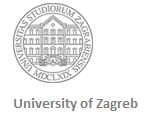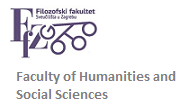Home » 8. i 10. semestar : KNJIŽEVNI KOLEGIJI
Category Archives: 8. i 10. semestar : KNJIŽEVNI KOLEGIJI
History and Memory in the Contemporary American Novel
Dr Jelena Šesnić Literary Seminar (MA): History and Memory in the Contemporary American Novel (A/ 20) Spring 2026 Course schedule: Mon, 10.15-11.45 (A-105); Wed, 13.15-14.00 (A-105) Office: B-018 Phone: 01-4092060 E-mail: jsesnic@m.ffzg.hr Office hours: Mon, 12.00-13.00; Thur 10.00-11.00 Course description: The twentieth century has often been seen as a period overdetermined by memory, but also […]
The Nineteenth-Century American Novel
Dr. sc. Jelena Šesnić The Nineteenth-Century American Novel (Spring 2026) (A/ 19) Course schedule: Mon, 8.45-9.30 (A-123); Wed, 9.30-11.00 (D5) Office hours: Mon, 12.00-13.00; Thu, 10.00-11.00 Office: B-018 Phone: 01- 4092060 E-mail: jsesnic@m.ffzg.hr Course description: The novel is a key literary genre in the development of U.S. national literature. The course proposes to chart a […]
Test
test eng
Irish Modernism
Course Title: Irish Modernism Instructor: Assoc. Prof. Dr. Tihana Klepač ECTS Credits: 6 Language: English Duration: 2nd or 4th semester Status: Elective course Course Overview: The course places Irish Modernism in the context of nation-state formation and identifies various attitudes towards this historical process and its protagonists as expressed in literary works. Objective: To highlight […]
Contemporary U.S. Ethnic Literatures
Dr. Jelena Šesnić Literary seminar: Contemporary U.S. Ethnic Literatures (MA) (A, 20th c.) Spring 2025 Mon 10:15-11:45 a.m. (A-105) Wed 1:15- 2 p.m. (A-105) E-mail: jsesnic@m.ffzg.hr Phone: 01-4092060 Office hours: Mon, 12-1 pm; Thu, 10-11 am (office B-018) Course description: The course examines a very innovative and dynamic section of contemporary US literary/cultural production—literature produced […]
Anglophone Women’s Writing
Course title: Anglophone Women’s Writing Instructor: Assoc. Prof. Martina Domines ECTS credits: 6 Status: elective Semester: 2nd and 4th semester Enrollment requirements: enrollment in the 2nd and 4th semester Course description: The course offers an insight into feminist theories of the 2nd half of the 20th century to the present day on the examples of […]
London in Modern Anglophone Women’s Literature
Course title: London in Modern Anglophone Women’s Literature ECTS credits 6 Semester: Summer, 2nd or 4th Instructor: Tihana Klepač, PhD, Assoc. Prof. Prerequisites: None Goal To become aware of mechanisms which led to the formulation of Modernism in different cultures of the English speaking world: to become aware of the necessity of discussion on modernity […]
Narrative DissemiNation of the Land of Oz: Indigenous storytelling
Instructor: Assoc. Prof. Iva Polak ECTS credits: 6 Language: English Status: elective Semester: 2 or 4 Enrolment requirements: enrolment in any graduate studies of the English Department Course description: The course focuses on contemporary Indigenous Australian cultural production and its location within contemporary Australia. Discussions will touch upon myriad issues relevant for contemporary Indigeneities: identity, […]
The History and Paradigms of American Studies 2 (Cvek, 2021)
Course title: Literary Seminar (MA Level): The History and Paradigms of American Studies 2 (A, 19/20) Instructor: Dr. Jelena Šesnić, Dr. Sven Cvek ECTS credits: 6 Status: elective (obligatory for American Studies majors in the 2nd semester) Enrollment requirements: enrollment in the 2nd and/or 4th semester Spring 2021 Office: B-018 Phone: 01- 4092060 Syllabus Course […]
Re-presenting Los Angeles and the American City in Media
Course Title: Re-presenting Los Angeles and the American City in Media Instructor: Dr. Leo Zonn Semester: winter or summer semester 2010/11 The University of Texas at Austin, Fulbright Visitor Course Title: Re-presenting Los Angeles and the American City in Media Eligible Students: Graduate, Elective Course ECTS credits: 6 Course Description: The purpose of this course […]
The History and Paradigms of American Studies 2
Course title: Literary Seminar (MA Level): The History and Paradigms of American Studies 2 (A, 19/20) Instructor: Dr. Jelena Šesnić. Dr. Sven Cvek ECTS credits: 6 Status: elective (obligatory for American Studies majors in the 2nd semester) Enrollment requirements: enrollment in the 2nd and/or 4th semester ! Students who wish to enroll into the course […]
The History and Paradigms of American Studies 2 (Šesnić, 2018)(arch.)
Course title: The History and Paradigms of American Studies 2 (A, 19th c./20th c.) Instructor: Dr. Jelena Šesnić ECTS credits: 6 Status: elective (obligatory for American Studies majors in the 2nd semester) Enrollment requirements: enrollment in the 2nd and/or 4th semester Course description: This course is a companion course to the History and Paradigms of […]
Ethics and Aesthetics of British Modernism
Course title: Ethics and Aesthetics of British Modernism Instructor: Martina Domines Veliki, PhD ECTS credits: 6 Language: English Duration: 2nd or 4th semester Status: elective Course type: 1 hour of lecture, 2 hours of seminar Prerequisites: completed undergraduate studies Course description: The course deals with trauma theory the New Poverty Studies in order to address […]
British Romanticism: prose
Course title: British Romanticism: prose Instructor: Martina Domines Veliki, PhD ECTS credits: 6 Language: English Duration: 4th or 6th, 8th or 10th semester in ac. year 2017/18: 4th or 6th semester Status: elective Course type: 1 hour of lecture, 2 hours of seminar Enrollment requirements: enrollment in the 4th or 6th, 8th or 10th semester […]
The History and Paradigms of American Studies 2 (Šesnić, 2017)
Course title: The History and Paradigms of American Studies 2 (A, 19th c./20th c.) Instructor: Dr. Jelena Šesnić ECTS credits: 6 Status: elective (obligatory for American Studies majors in the 8th semester) Enrollment requirements: enrollment in the 8th and/or 10th semester Course description: This course is a companion course to the History and Paradigms of […]



